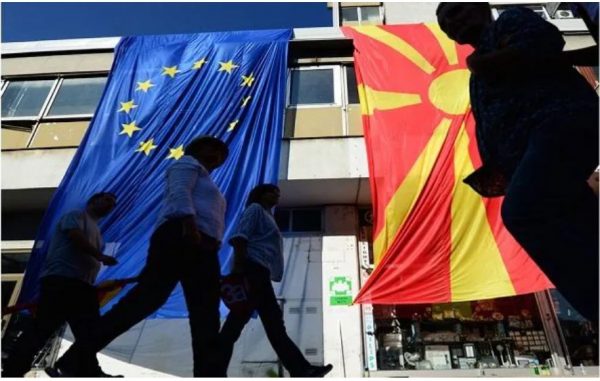Germany wanted to hold the first intergovernmental conferences with Albania and North Macedonia by the end of 2020, but unfortunately failed to convince Bulgaria to agree, so talks will resume next year. We’ve made it clear that there’s no room for bilateral issues, especially historical differences, in the enlargement process, Susanne Schütz, Director for South-East Europe, Turkey and EFTA States in the German Foreign Ministry, said in an interview with Deutsche Welle.
The EU integration of the Western Balkans has strategic importance for the region, as well as the Union, which is why it was one of the top priorities of the German EU Presidency.
“If we look back on 2020, we’ll see that the Western Balkans have achieved important progress. Even though people in the region hoped for more, they must see the glass as half full. In March, EU member states made the important decision to start negotiations with Albania and North Macedonia. We wanted to hold the first intergovernmental conferences by the end of the year. Both counties have come a long way,” Schütz said.
She expressed disappointment that despite “intensive activities,” Bulgaria and North Macedonia failed to reach compromise. However, she stressed that North Macedonia’s NATO accession in 2020 should not be overlooked.
“Regarding North Macedonia, unfortunately we couldn’t convince Bulgaria to agree. However, North Macedonia also had red lines that couldn’t be crossed. Talks must resume next year. We’ve made it perfectly clear that there’s no room for bilateral issues, especially historical differences, in the enlargement process. That’s why we pleaded that issues regarding shared history should be discussed by the committee of historians, established through the Friendship Treaty. Bulgaria, too, wants North Macedonia to be able to join the EU,” Schütz stressed.
She underlined that Germany will resume activities aimed at the EU integration of the Western Balkans, taking into account that it will chair in 2021 the Berlin Process, taking over from North Macedonia and Bulgaria.
“During our chairmanship over the Berlin Process, we’ll resume dialogue and ask regional government to fully adhere to the basis of rule of law and take action to fight corruption, improve education and unemployment. It’s important that countries themselves create better conditions for citizens, offering bright future for them and their families,” Schütz told DW.















